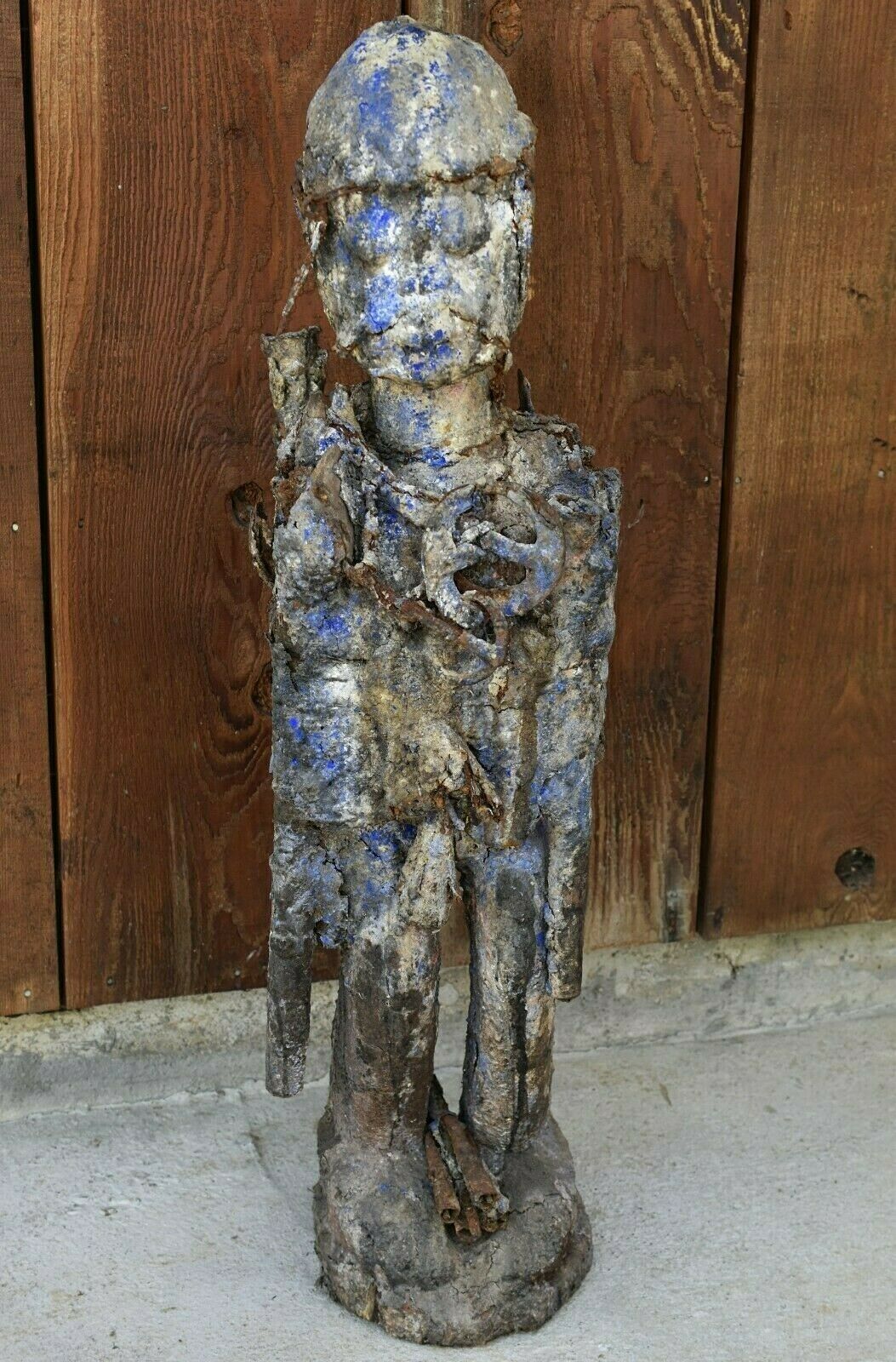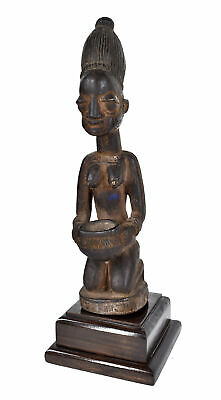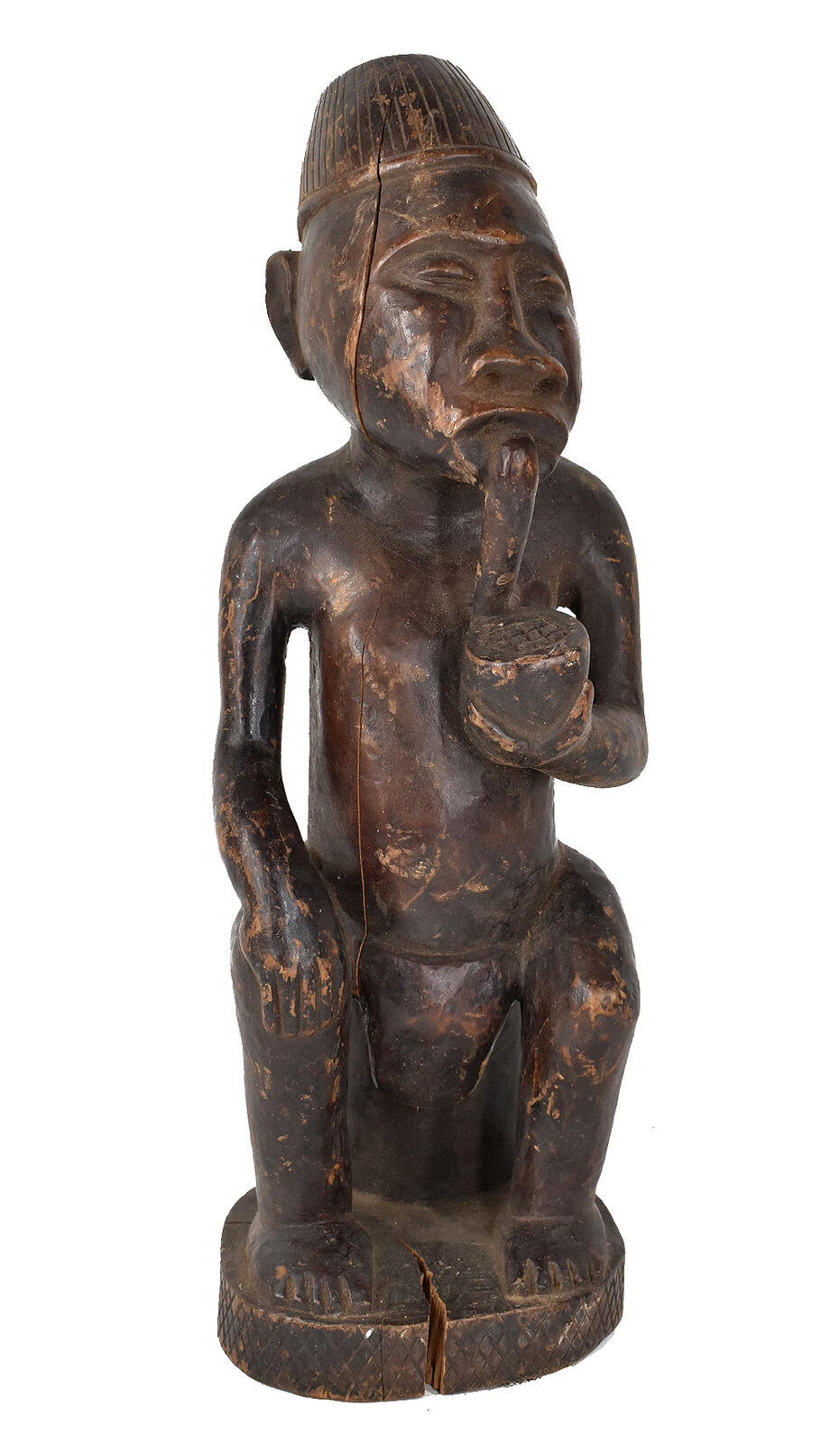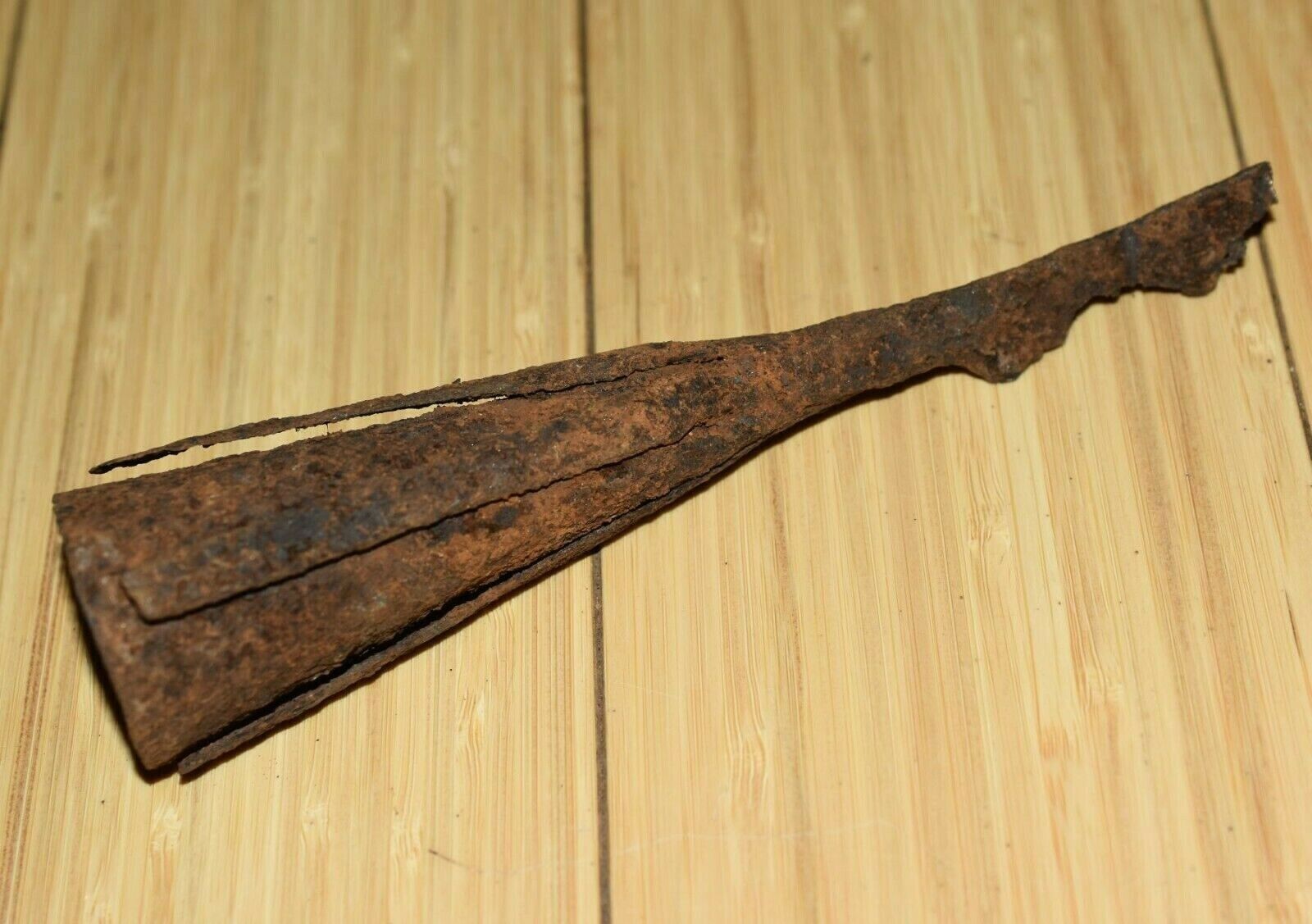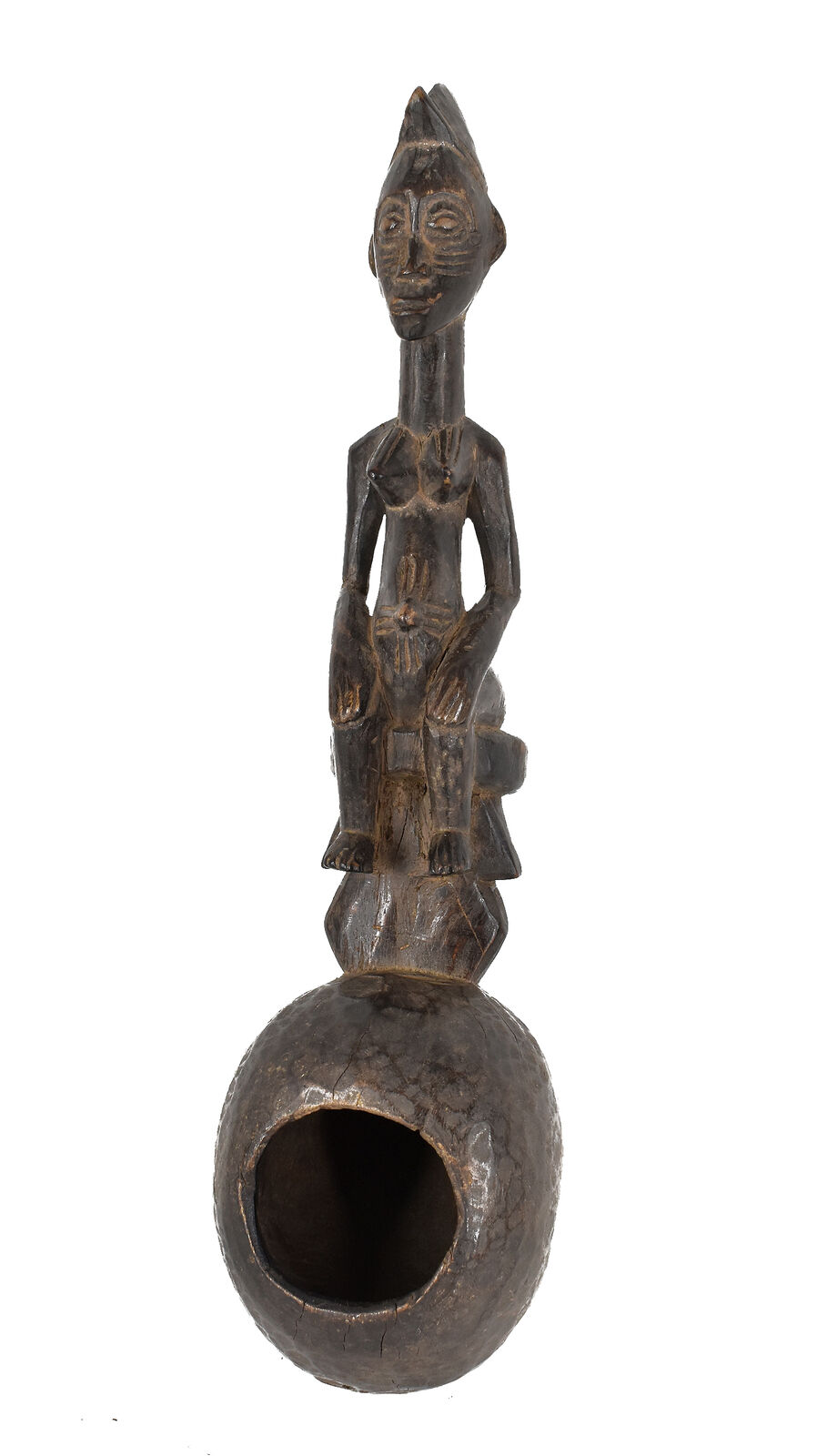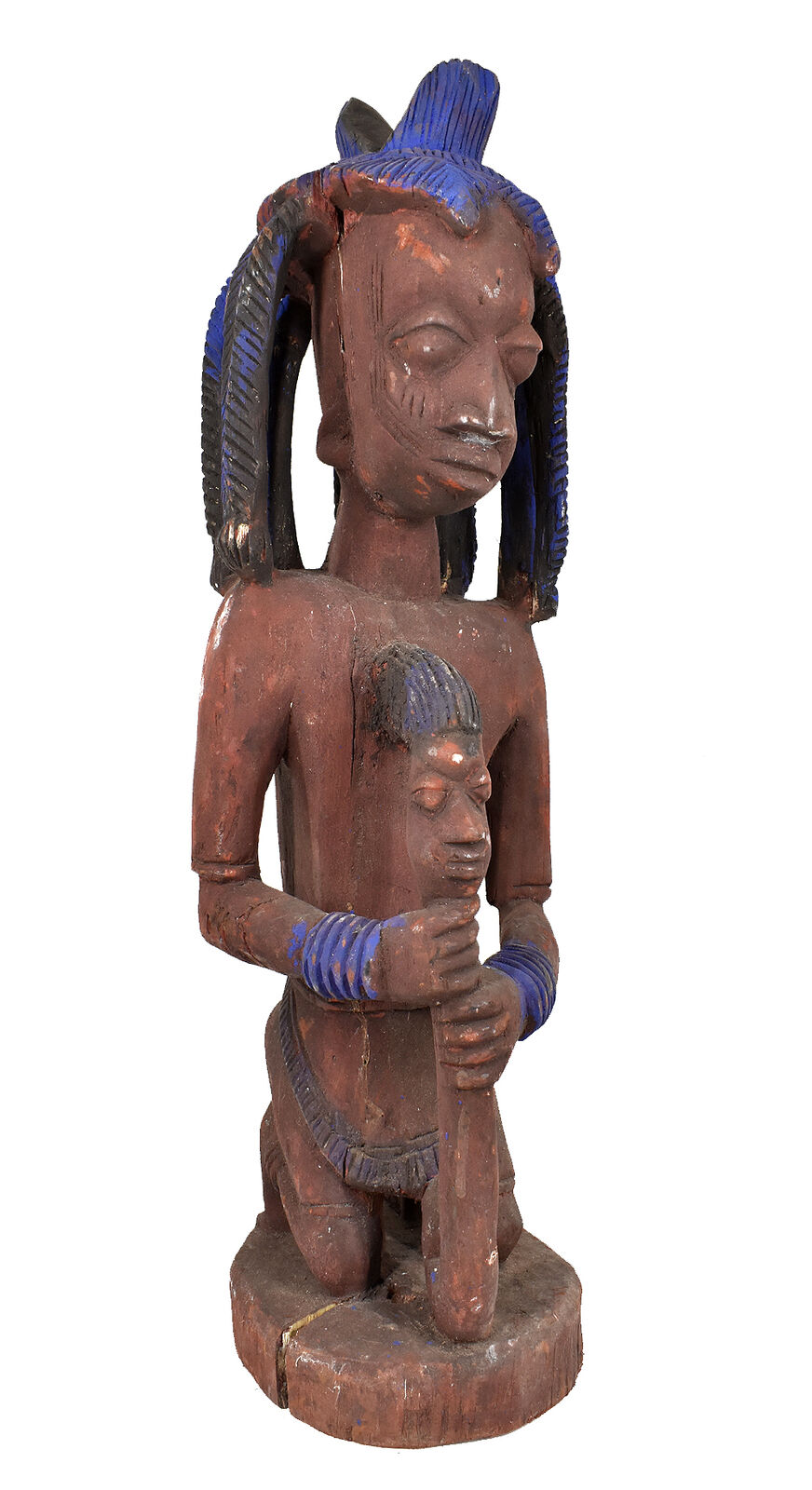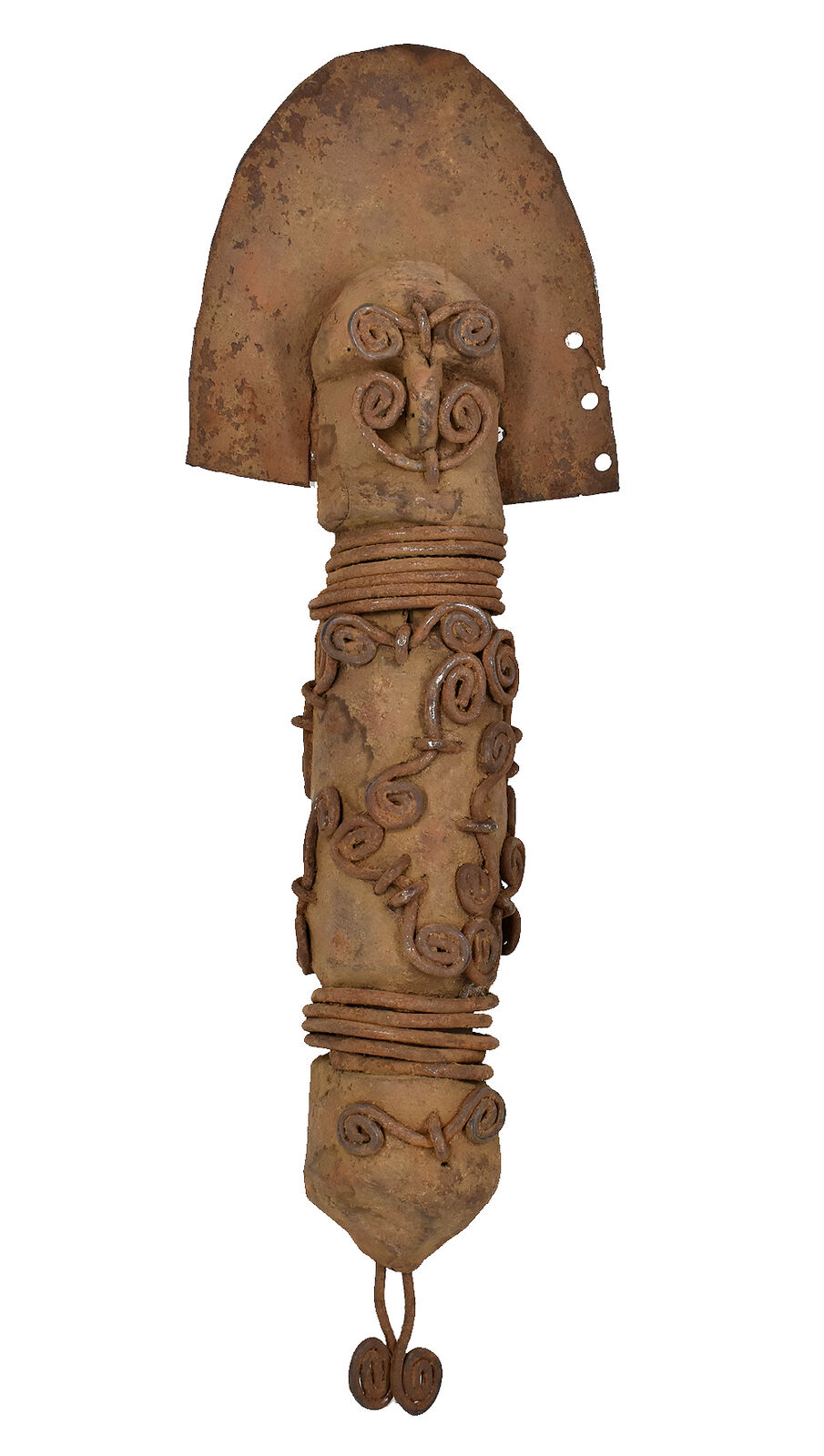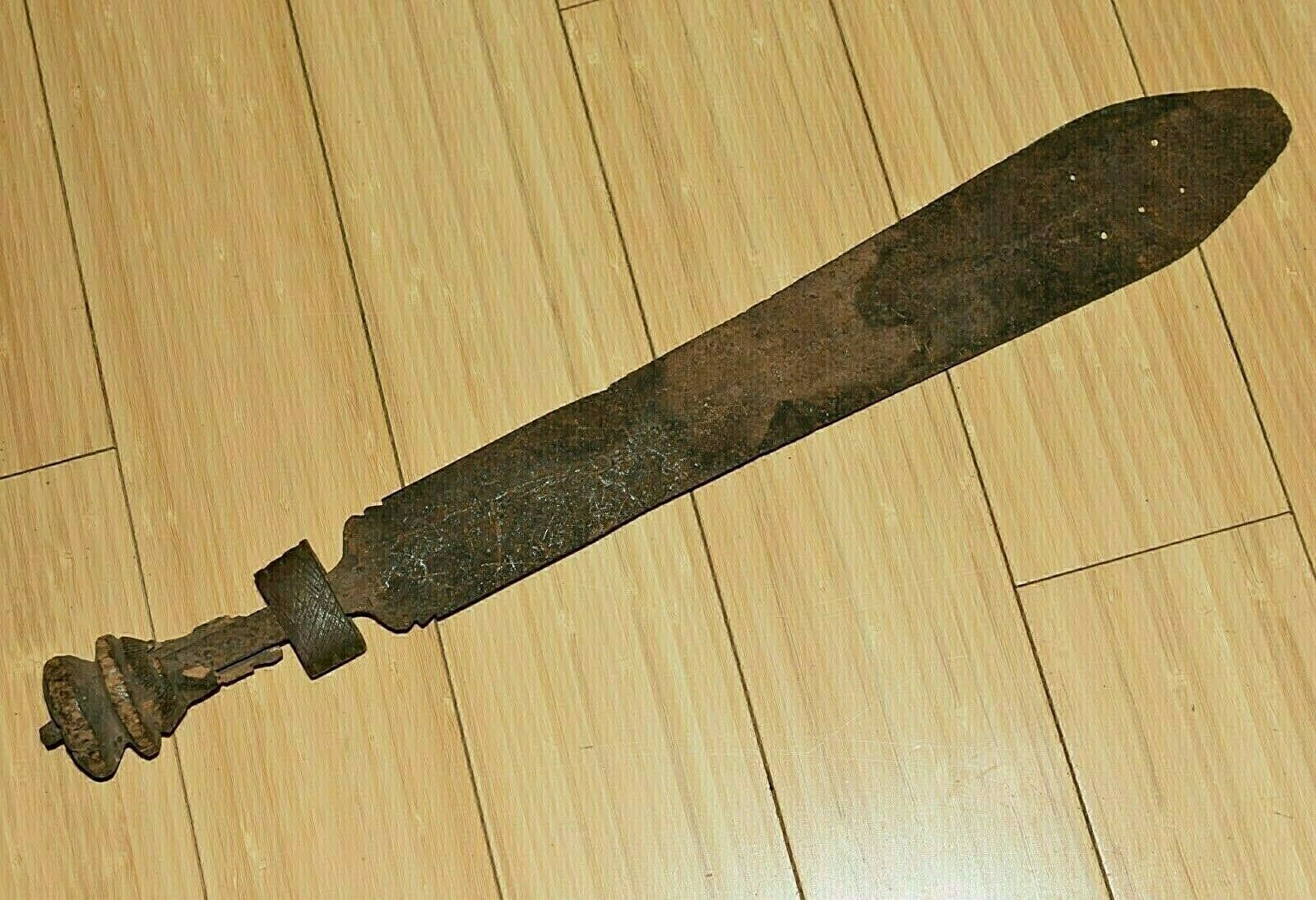-40%
Antique African Benin Fon Tribe Vodun Bochio Fetish Altar Offering Statue Voodoo
$ 3168
- Description
- Size Guide
Description
This is a very rare, very old antique large African Benin Fon tribal Bochio bound sacred fetish Vodun hand carved wooden statue from Benin, Africa.This Vodun bochio specimen was used on an altar of a Vodun temple and has many rusted deteriorated metal bells turned upright and a few bells turned downward, a metal knife, rusted chains, wooden staff, a glass bottle and several iron elements which look like inward turned crescents which are symbols of Hevioso the Thunder God. This Fon Vudon statue is completely covered in an encrusted patina as it has been impregnated with sacrificial mixtures by a Vudon Priest or Priestess over a long period which includes Talc powder, a blue pigment and a little pink pigment. Some statues on the Vodun altars are feed blood in honor of the darker spirits and some are feed talc powder in honor of the lighter spirits. Most Vodun altars are made up of both types of light and dark statues paying homage to both types of spirits. Also, there is a loose metal piece placed on the statues feet. This Fon Vodun statue is very delicate and some of the encrustation and some rusted metal which is deteriorated may come off during shipping even though the utmost care will be taken in its packing. I would be open to the buyer picking up the item or a close range in person delivery for the collector who would be wanting to keep this piece in the best condition. This Vodun altar piece has been a prized piece in my personal collection for seventeen years. This Vodun Fetish museum piece measures 38 inches tall by 10 inches wide and 13 inches deep and weighs 33 pounds. This is in authentic original antique condition showing much wear from age and being tribally used on a Vodun Temple Altar. The wood, metal and encrustation all shows signs of wear. The metal elements are very deteriorated and rusted, wood has cracks and deterioration also. The encrustation of offerings including the talc residue is delicate as is some of the deteriorated metal.The use of fetishes among the Vodun practitioners of Benin is widespread if not widely known about in Western culture and in fact Vodun statues are a vital part of the daily life of the village. A fetish statue, or more correctly bochio is simply understood as a prayer or a remote object which was been empowered by a priest, and used as an intermediary agent for change. The most frequent use of a bochio is to drive away the meddling forces of witchcraft, which to the Fon is the source of most problems.
Vodun or Vudun which means spirit in the Fon and Ewe languages, is pronounced vodṹ also spelled Vodon, Vodoun, Voudou, Voodoo and is an indigenous organized religion of coastal West Africa from Ghana to Nigeria. Vodun is practiced by the Ewe people of eastern and Southern Ghana, and Southern and Central Togo, the Kabye People, Mina People and Fon People of Southern and Central Togo, Southern and Central Benin and the Yoruba People of Southwestern Nigeria. Vodun is distinct from the various traditional animistic religions in the interiors of these same countries and Vodun is the main origin for religions of similar name found outside of Africa such as Haitian Vodou, the Vudu of Puerto Rico, Candomblé Jejé in Brazil (which uses the term Vodum), Louisiana Voodoo and Santería in Cuba and the Dominican Republic. All these are syncretized with Christianity and the traditional religions of the people of Congo and Angola.
Vodun cosmology centers around the Vodun spirits and other elements of divine essence that govern the Earth, a hierarchy that range in power from major deities governing the forces of nature and human society to the spirits of individual streams, trees, and rocks, as well as dozens of ethnic vodun, defenders of a certain clan, tribe, or nation. The vodun are the center of religious life, similarly in many ways to doctrines such as the intercession of saints and angels that made Vodun appear compatible with Christianity, especially Catholicism, and produced syncretic religions such as Haitian Vodou. Adherents also emphasize ancestor worship and hold that the spirits of the dead live side by side with the world of the living.
Contrary to popular beliefs in the practice of West African Vodun, spells are not cast upon others. Vodun is only a spiritual religious cult in which an main part of worship is devoted to caring for the ancestors. Even if the origin of humanity and the world are explained in Vodun mythology, it is not a centered question of the faith. The followers believe that the answer to such question is beyond human reach. Priority is given to the ancestors with them interceding on behalf of their families and descendant towards the Almighty. If an Almighty creator is recognized in Vodun pantheon, the believers do not address themselves to that particular deity. Only the Loas, the messengers with the help of the dead have that access. In order to communicate and pray every clan and sometimes each family root have their own Vodun sometimes called Assanyì as Vodun can also be translated as “The spirit of those who have passed before us”. The family designated Vodun is often associated with a known higher spirit of the standard pantheon, but is distinctive to each family (clan). This distinctiveness is the Clan Vodun is also an assertion of identity and origin with cult and worshiping process specific to a family collective.
Please visit my ebay store Mountainamma's Marketplace to browse thousands of items from Africa and beyond.
